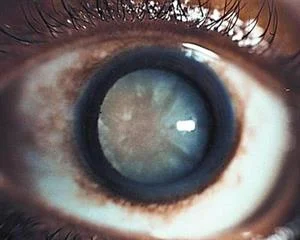What is a cataract?
A cataract is a clouding, or haziness, of the natural lens of your eye. This part of your eye helps focus light on your retina, the area where images are formed. When the lens becomes cloudy, these images are less clear.
Cataracts usually develop slowly, so you might not notice any vision changes at first. Cataract symptoms include:
Blurry vision
Difficulty seeing well at night
Glare, halos around objects or sensitivity to bright light
Double vision
Loss of color vision (colors look yellow or faded)
Needing a new glasses or contact lens prescription more often
How the eye works.
You might notice problems with activities that require clear vision, such as reading or playing golf. By examining your eyes, an eye doctor can tell you if you have cataracts in one or both eyes.
Cataracts don’t usually cause pain, eye irritation or vision problems that come and go. If you have any of these symptoms, you might have a different eye condition. Talk to your doctor about any eye symptoms or vision changes, especially sudden changes.
Causes
Cataract Formation
Aging is the most common cause of cataracts. About 50 percent of Americans aged 65-74 have some degree of cataract, and 70 percent of Americans who are 75 or older have cataracts.
Other causes include:
Previous eye injury or surgery
Genetic (inherited) disorders
Risk factors are conditions that don’t necessarily cause cataracts, but increase your chance of getting them. They include:
Diabetes and other medical conditions
Long-term exposure to sunlight
Radiation from X-rays or radiation treatments
High blood pressure and obesity
Smoking
Long-term use of certain medications, such as prednisone or other steroid medications
Having family members with cataracts
Treatment
Cataracts are removed with surgery. An ophthalmologist (medical doctor specializing in eye care and surgery) removes the cataract and replaces it with an artificial lens. The artificial lens is also called an intraocular lens or IOL.
Surgery is the only effective cataract treatment. No eye drops or medications can remove or reduce cataracts.

